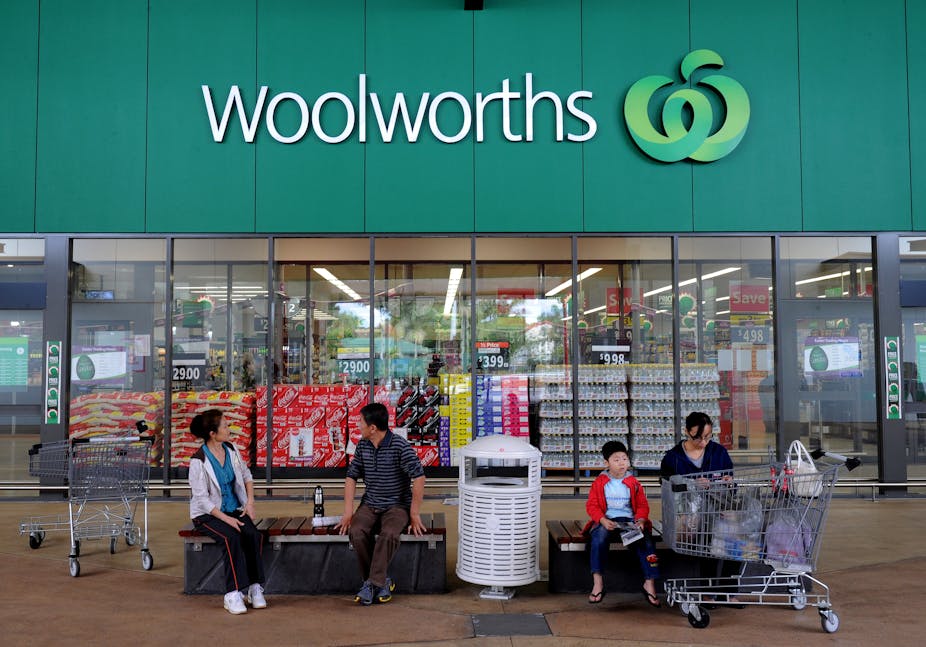The Australian Competition and Consumer Commission (ACCC) has declared open season on Coles and Woolworths. In an unusual step, the ACCC’s chairman, Rod Sims, discussed his organisation’s current investigations when he appeared at Senate Estimates last week. While subsequent media attention has been upon the supermarkets’ dealings with suppliers, Mr Sims has identified “the main focus of [the ACCC’s] attention” as being shopper docket schemes.
The supermarket chains use shopper dockets to provide petrol discounts to consumers who qualify with a minimum spend. These schemes are problematic for the ACCC: similar to predatory pricing, any harm they cause to competition results from lower prices. When prices fall too low for too long, competition is impeded as rivals are squeezed out. “The fact that some of the discounts are now 8c and running for multiple months… does mean that you get a sense that the level and length of the discounts are ones that just cannot be matched”, said Mr Sims.
Any impact on competition occurs well down the track, with consumers benefitting from low prices in the meantime. So before intervening, the ACCC has to be sure that the competitive impact is real and that – absent intervention – prices will rise in the long term.
Interestingly, late last year, the ACCC chairman identified potential collusive activity in the petrol industry, via the exchange of pricing data, as another concern. Cartels don’t try to bring prices down; collusion is designed to increase prices. This is at odds with a concurrent concern that low prices are impeding competition. This investigation was not discussed by Mr Sims when he appeared before the Senate, and its status is unclear.
The other key issue raised in the grocery sector concerns the treatment of suppliers. For many years, there has been talk of undue pressure on suppliers. Such talk rarely translates into hard evidence – of itself, however, this is contra-indicative. It could mean there’s no problem or, alternatively, suppliers may be so cowed that they dare not speak.
With the recent rise of “home brand” or private label products, the treatment of suppliers now has a very public face. The infamous milk wars prompted their own Senate inquiry about 18 months ago, with the overwhelming conclusion being that suppliers felt forced to fulfil home-brand contracts at very low prices, even though those prices were inevitably impacting upon the prices of branded products.
Meanwhile, consumers are spotting private label products on the same shelves and in very similar packaging as the market leaders, albeit at much lower prices. “Copycat” packaging – if taken to an extreme – does give a supplier rights to sue (for example, for passing off, misleading or deceptive conduct or even trademark infringement). But when the supermarket chains are an essential gateway to customers, what supplier would dare complain?
The ACCC, however, may be able to intervene on their behalf. It is currently assessing whether there is enough evidence to prove that the supermarket chains are behaving unconscionably or if they’re misusing market power. Both these claims are tough to prove: the ACCC has had limited success in contested market power cases (although it did have an epic victory over Safeway/Woolworths in a case that lasted nine years). And, although the law of unconscionability has been broadened recently, a Federal Court decision a fortnight ago indicates this sort of case is no easier.
Indeed, virtually all misuse of market power and unconscionability cases are extremely difficult to establish. But the ACCC faces an even harder task in the grocery sector, as suppliers tend to be very reticent about the terms imposed by the chains. Even during the Grocery Inquiry in 2008, the ACCC struggled to get hard evidence of anti-competitive conduct, although innuendo and hearsay abounded.
Rod Sims, however, has asked those in the know to come forward on a confidential basis – and it appears the ACCC has received sufficient confidential approaches to enable it to invoke its compulsory powers. As he told the Senate: “we have identified some behaviour, which has come from the allegations from those we have spoken to confidentially, and… if that behaviour can be put to proof then that could be a breach of the [Competition and Consumer Act]”.
Where it has sufficient basis, the ACCC has legal power to compel parties - even potential victims of anti-competitive conduct – to provide it information. An outsider cannot tell a “friendly” examination from a genuinely compulsory one, so if the ACCC were to compel multiple parties, suppliers would have a degree of anonymity and thus protection from retaliatory action.
The ACCC has to talk big and with confidence to encourage suppliers to come forward and provide it with enough evidence to make a case. But it will then have to deliver. This is not the first time the ACCC has declared its intentions to fix problems (actual or perceived) in a given market – remember the infamous raids on petrol companies under Allan Fels? But the legal tests are difficult to satisfy and the evidence hard to gather, while those in the gun are well-resourced to defend any action. The ACCC has foreshadowed an end to its shopper docket investigation by the middle of the year, with no timing on the other allegations.
Filing a case would be the end of the beginning.

